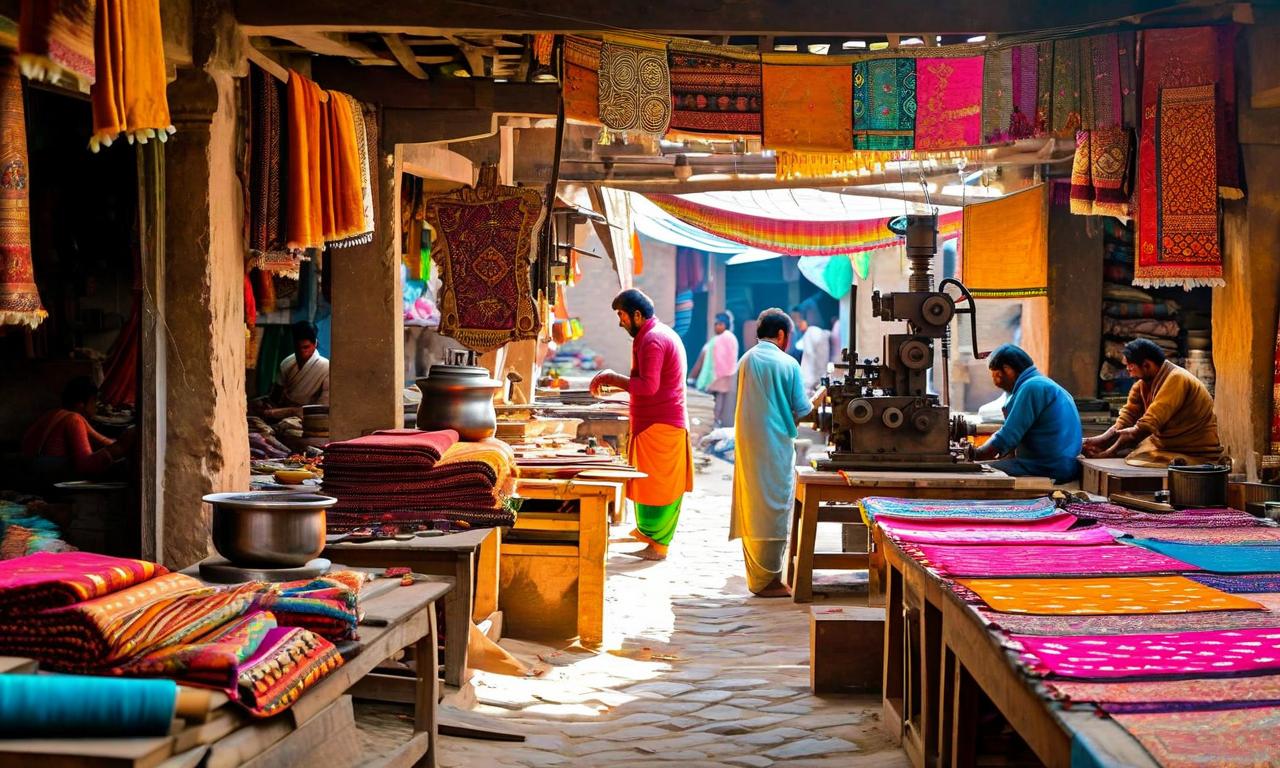MSME Sector Shows Resilience Amid Slight Dip in Business Optimism
India's MSME sector demonstrates resilience according to the SIDBI MSME Outlook Survey. The Business Conditions Index slightly decreased to 61.64 from 63.75, but the Business Expectations Index is projected to rise to 66.57 by July-September 2026. Manufacturing and services sectors maintained steady optimism, while trading enterprises showed more volatility. Positive trends include improved cost pressures, stable profit margins, enhanced credit access for manufacturing MSMEs, stronger capacity utilization, and positive investment sentiment. Challenges persist in financing, especially for smaller firms and the services sector, with a $380 billion credit gap. The MSME sector, comprising 67 million enterprises, contributes 30% to GDP and employs over 120 million people.

*this image is generated using AI for illustrative purposes only.
India's micro, small and medium enterprises (MSMEs) have demonstrated resilience in the face of economic challenges, according to the latest SIDBI MSME Outlook Survey. Despite a modest decline in business optimism during the September quarter, the sector maintains a positive outlook for the future.
Key Findings
| Indicator | Current Quarter | Previous Quarter | Projected (Jul-Sep 2026) |
|---|---|---|---|
| Business Conditions Index | 61.64 | 63.75 | - |
| Business Expectations Index | - | - | 66.57 |
The survey reveals a slight dip in the Business Conditions Index, which fell to 61.64 from 63.75 in the previous quarter. However, the sector's resilience is evident in the projected Business Expectations Index, which is anticipated to rise to 66.57 by July-September 2026.
Sector-wise Performance
- Manufacturing and Services: These sectors maintained steady optimism.
- Trading Enterprises: Showed more volatility compared to other sectors.
Positive Trends
- Improved Cost Pressures: Lower inflation has eased cost pressures on MSMEs.
- Stable Profit Margins: Despite challenges, profit margins have remained stable.
- Enhanced Credit Access: Manufacturing MSMEs, in particular, have seen improvements in credit accessibility.
- Stronger Capacity Utilization: The survey indicates strengthened capacity utilization among MSMEs.
- Positive Investment Sentiment: Over 60% of respondents expect improvements in ease of doing business.
Challenges
- Financing Issues: Smaller firms and companies in the services sector continue to face challenges in accessing finance.
- Credit Gap: According to World Bank estimates, India's MSMEs face a substantial credit gap of $380 billion.
MSME Sector Overview
| Metric | Value |
|---|---|
| Number of MSMEs | 67 million |
| Contribution to GDP | 30% |
| Employment | Over 120 million people |
The survey results suggest that while there are short-term fluctuations, the overall outlook for India's MSME sector remains positive. Factors contributing to this optimism include expectations of improving domestic demand and supportive policies, such as GST rate cuts.
As the backbone of India's economy, the MSME sector's resilience and adaptability in the face of changing economic conditions underscore its crucial role in the country's economic landscape. The projected improvement in business expectations indicates that despite current challenges, MSMEs are poised for growth and continued contribution to India's economic development.





























